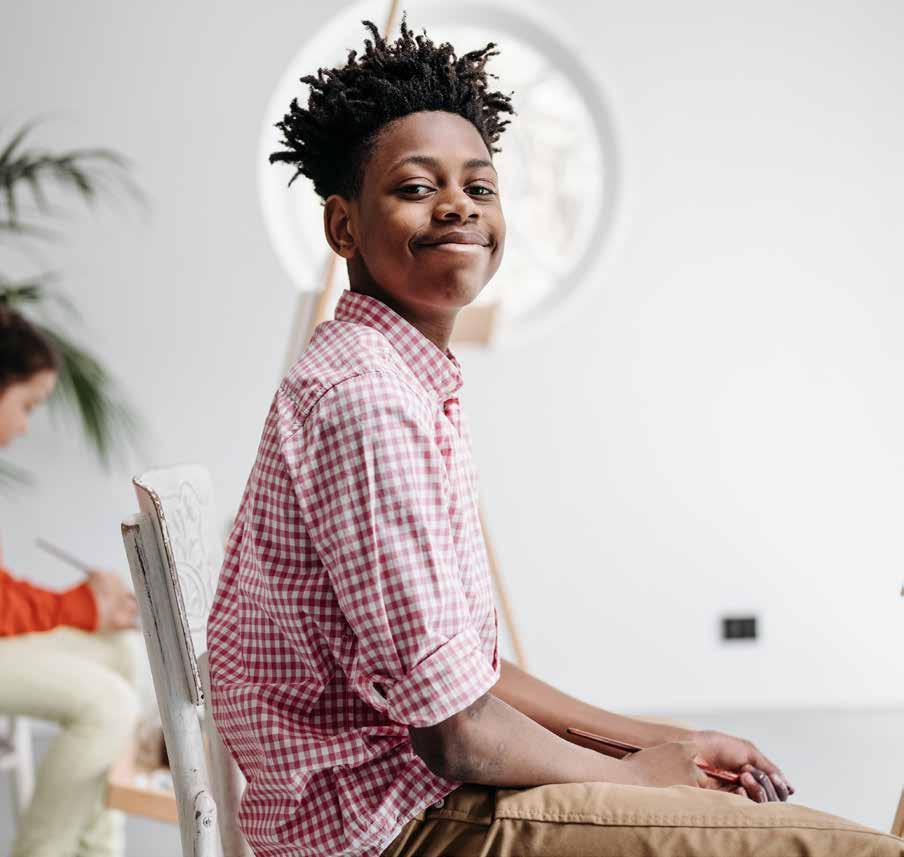

10/ Navigating Kids’ Privacy Online Tips to help kids manage growing up in public 27/ RailCycle Mt. Rainier Thrills Riders A new rail bike ride is this season’s hot family attraction SEPTEMBER 2023 | PARENTMAP.COM Back-toSchool Cool Start the school year headed in the right direction PARENTMAP’S ParentEd Talks return. See the 2023–2024 lineup. P. 23 PNW INSIDE + OUT
I NCREASE YO UR SENSE OF SELF-COMPASSION, RESILIENCE AND WELL-BEIN G
- Online classes are all 6 weeks -
With
INCREASE YOUR SENSE OF SELF-COMPASSION, RESILIENCE AND WELL-BEING
- Online classes are all 6 weeks -
- Mindful Practice and Self-Regulation -
- Self-Compassion -
- Attachment and Attunement with your child(ren) -

- Inner wisdom -
WITH THE GUIDANCE OF A TRAINED FACILITATOR, WE WILL CO-CREATE AND EXPLORE YOUR CONNECTION TO:


Notall of us candogreat things
- MINDFUL PRACTICE AND SELF-REGULATION -
www.communityofmindfulparenting.com
- SELF-COMPASSION -
- ATTACHMENTS AND ATTUNEMENT WITH YOUR CHILD(REN) -

- INNER WISDOM -
Not all of us can do great things. But we can do small things with great love and compassion . . . starting with ourselves . . .
Inspired by Mother Teresa

www.communityofmindfulparenting.com
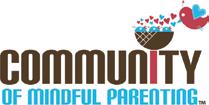


2 / PARENTMAP.COM
the
of a trained facilitator,
will
-create
guidance
we
co
and explore your connection to:
inspired by Mother Teresa
Strengthening Bonds Through The Path Of Self-Kindness
But we can do small things with great love andcompassion…starting withourselves.. community_mindful_parenting_1-4.indd 1 8/3/21 3:41 PM
0923_comm_mindful_parenting_1-2v.indd 1 8/16/23 10:16 PM




PARENTMAP / SEPTEMBER 2023 / 3 wildernessawareness.org SCHOOLYEAR PROGRAMS BUILDING STRONG CONNECTIONS WITH NATURE, COMMUNITY, AND SELF SEATTLE & EASTSIDE LOCATIONS AGES 4 – 18 WEEKLY -and- MONTHLY







Seattle Rep has something for the whole family this fall.
seattlerep.org
Left: Freya Wild in Passengers. Photo by Alexandre Galliez
Directed, Written &
From The 7 Fingers
Choreographed by Shana Carroll
Conceived & Directed by Amy Draper
Book by Stewart Melton Music & Lyrics by Finn Anderson
by Kate Hamill
Sep 22 – Oct 15, 2023 Oct 20 – Nov 19, 2023 Nov 10 – Dec 17, 2023 Tickets On Sale Now! 4 / PARENTMAP.COM
Adapted from the Novel by Louisa May Alcott
There are a lot of obvious advantages to this simple idea. To start, it makes attending a party so much easier.



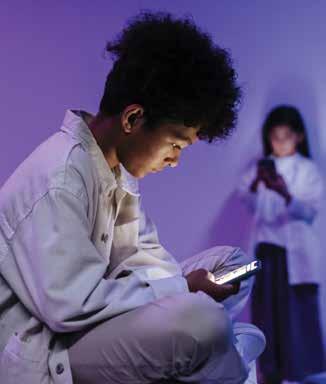
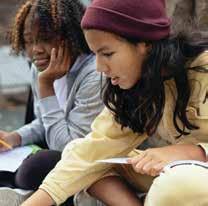

September 2023 Parenting WELLNESS Self-Esteem Hacks for Teens 8 Coach your teen through tough times EDUCATION Teaching Kids Critical Thinking Skills 16 Easy strategies to incorporate into everyday life How to Raise a Creative Child 38 Step back, get messy and have fun COMMUNITY Neighborhood Spotlight: West Seattle’s Alki Beach 35 Plan a daycation at this always-popular spot AGES + STAGES Are Deadlines Dead? 40 Does submitting timely assignments matter anymore? BIRTHDAYS Stress-Free Birthday Hack: Host a ‘Fiver’ Party 44 No more scrambling to find the perfect party gift Local Resources Schools + Preschools 15 Camps + Activities 38 Birthdays 44 CONTENTS Feature Navigating Kids’ Privacy Online 10 Tips to help kids manage growing up in public Family Fun OUT + ABOUT RailCycle Mt. Rainier Thrills Riders 27 A new rail bike ride is this season’s hot family attraction September Play List 32 Squeeze every moment out of the last glorious days of summer
PARENTMAP.COM In Every Issue Dear Reader 6 Play List 32 16
“Tracking kids can increase anxiety. Also, when kids feel over-surveilled, it can drive them underground.” p. 10
10 40 32 35 44
Photo by Rory Graves
PARENTMAP / SEPTEMBER 2023 / 5
Where, oh where, has summer gone?
I’m not sure that “back-to-school” can be officially classified as a season. But as far as I’m concerned, it’s second only to the winter holidays. It scratches that mid-August itch kids and parents get — longing for the structure and routine the school year brings after summer’s haphazard, lazy days. Its predictability is comforting. And its fresh start invites us to embrace possibility. Because this year — this year — is going to be the best year ever.
I relish those back-to-school rituals, teeming with hope. Helping the kids select that perfect first-day outfit and laying it out the night before, just to be on the safe side. Stocking up on new boxes of crayons, packs of unsharpened No. 2 pencils and blank spiral notebooks that get carefully packed away until the night before. The school year is still unwritten.
I fully acknowledge that the excitement of the BTS season is fleeting; it usually takes about a month before my family is struggling to get out the door on time every morning and preplanned outfits are a thing of the past. But I’m going to enjoy the honeymoon phase while I can, and that’s reflected in our “Back-to-School Cool” issue. It’s full of exciting new adventures for families, plus answers to pressing questions that usually pop up during the school year.
Late summer is the perfect time to check out RailCycle Mt. Rainier (p. 27), a scenic new experience that’s the perfect excuse for parents to get everyone outside for exercise, family time and sunshine, while the weather is still good. Couple that with our September Play List (p. 32), and you’ll have enough post-Labor Day plans to get you through to October.
We’re also tackling the idea of deadlines (p. 40), — wondering aloud if they matter anymore and if they’re necessary for kids to be successful in school (spoiler alert: they are). Finally, our feature story (p. 10) includes pointers on helping kids navigate online life with success, from author Devorah Heitner, Ph.D. Her new book, “Growing Up in Public,” delves into changing concepts surrounding privacy in the age of the internet, and it’s a fascinating read.
— Allison Sutcliffe, managing editor
What’s your family’s favorite BTS tradition?
Alayne Sulkin
EDITORIAL
DIRECTOR OF CONTENT + AUDIENCE ENGAGEMENT
Patty Lindley
MANAGING EDITOR
Allison Sutcliffe

OUT + ABOUT EDITOR
Nancy Chaney
TRENDS AND ENGAGEMENT EDITOR
Madison Miller
ASSOCIATE EDITOR
Kari Hanson
CALENDAR EDITOR
Julie Dodobara
COPY EDITOR
Sunny Parsons
CONTRIBUTORS
Nancy Chaney, Diana Cherry, Laura Markham, Ph.D., Vicky McDonald, Madison Miller, Sanya Pelini, Ph.D., Allison Sutcliffe, Jenna Vandenberg
DIGITAL MARKETING
EMAIL MARKETING SPECIALIST
Devon Hammer
SOCIAL MEDIA SPECIALIST
Emily Feely
ADVERTISING SALES + PARTNERSHIPS
DIRECTOR OF COMMUNITY
PARTNERSHIPS + ADVERTISING SALES
Jessica Collet
SENIOR ADVERTISING AND PARTNERSHIPS MANAGER
Ida Wicklund
EVENTS + COMMUNITY
PARTNERSHIPS SPECIALIST
Brenna McCown
CLIENT SERVICES + DESIGN COORDINATOR
Angela Goodwin
ADVERTISING CLIENT SERVICES SPECIALIST
Mallory Dehbod
DIGITAL ADVERTISING + MARKETING SPECIALIST
Taryn Weiner
PRODUCTION COORDINATOR
Tamryn Nell
ART + PRODUCTION
SENIOR DESIGNER
Amy Chinn
ADMINISTRATION
BUSINESS MANAGER
Carolyn Brendel
OPERATIONS ASSISTANT
Erika Widjaja
PARENTMAP EDITORIAL ADVISORY BOARD
Benjamin Danielson, M.D. CLINICAL PROFESSOR, UW SCHOOL OF MEDICINE PRACTICING PHYSICIAN, UW MEDICINE
Joan Duffell RETIRED EXECUTIVE DIRECTOR, COMMITTEE FOR CHILDREN
John Gottman, Ph.D. THE GOTTMAN INSTITUTE PROFESSOR EMERITUS, UNIVERSITY OF WASHINGTON
Laura Kastner, Ph.D.
PSYCHIATRY + BEHAVIORAL SCIENCES, UNIVERSITY OF WASHINGTON
Bea Kelleigh VICE PRESIDENT, DOVETAILING, LLC
Yaffa Maritz, M.A. FOUNDER, LISTENING MOTHERS + COMMUNITY OF MINDFUL PARENTING
Daniel J. Siegel, M.D. EXECUTIVE DIRECTOR, MINDSIGHT INSTITUTE
Put on a first-day fashion show
First day of school pictures in front of our retaining wall
Neighborhood dads host an outdoor movie
S’mores in the firepit the night before
Bake cookies together for a first-day lunch treat
CONTACT INFORMATION
Advertising information 206-709-9026 or advertising@parentmap.com
Fax 206-709-9031
Calendar submissions
calendar@parentmap.com
Editorial submissions
editor@parentmap.com
Distribution distribution@parentmap.com
Administration
206-709-9026, parentmap.com
Subscriptions subscriptions@parentmap.com
Subscription rate 1 year: $12
DEAR READER
SEPTEMBER 2023, VOL. 20, NO. 9 PUBLISHER
ParentMap is published monthly. PMB #190, 7683 S.E. 27th St., Mercer Island, WA 98040 All rights reserved; reproduction in whole or part without permission is prohibited. © ParentMap 2023 • printed in Oregon
6 / PARENTMAP.COM
2023
Come join us at Seattle’s Green Lake Park for the Washington CeaseFire 5k Run/Walk

Sunday, October 1, 9:30 a.m.
This is a great way to show support for reducing gun violence in our schools and communities.
Scan to register:



SATURDAY, OCTOBER 14, AT 11AM
Día de los Muertos
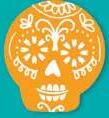

FAMILY CONCERTS SERIES

Sunny Xia conductor
José Hernández host
Seattle Symphony



DE ABREU Tico-tico no Fubá
Or go to: washingtonceasefire.org

Since 1983, Washington CeaseFire, a nonprofit organization, has been working towards implementing reasonable solutions to reduce the toll of gun violence in Washington State.

JOSÉ HERNÁNDEZ Jarabe Sinfonico No. 1 (World Premiere)
ARTURO MÁRQUEZ Danzón No. 2 for Orchestra
GALINDO Sones de Mariachi
MONCAYO Huapango
GABRIELLA ORTIZ Kauyumari
7SnohomishCountylocations
Enjoy a fun-filled family event featuring vibrant Mexican music and composers with dazzling guest artists, decorated ofrendas and colorful festivities.















Sunny Xia’s position is generously underwritten as the Douglas F. King Associate Conductor.
e ymphony’s
Delta Air Lines proudly supports the Seattle Symphony’s Community Partnerships for Youth and Education.

FOR TICKETS: 206.215.4747 | seattlesymphony.org
phony.org
fortheWholeFamily
2024 SEASON AT BENAROYA HALL PrimaryCare
Adult&childwellchecks·Developmentalmilestonestracking Immunizations·Sportsphysicals·Mentalhealthsupport wwmedgroup.com/parent-map
LocallyOwned Acceptingnewpatientsfor:
0923_WA_ceasefire_1-4.indd 1 8/3/23 1:36 PM
Wellness
6 Self-Esteem Hacks for Teens
How to be your teen’s best coach for developing positive self-regard
By THIRA Health
Navigating through the teenage years isn’t always that great of an experience for a lot of people. Between puberty and the effects of hormones on teenage emotions, trying to fitting in, dealing with insecurities, discovering an individual sense of selfworth and chasing independence, being a teen can be an emotional roller-coaster. Because of those heightened hormones, teens tend to feel things very deeply. While all of these feelings are valid and normal, they can be overwhelming at times, especially for teens who haven’t developed the coping skills necessary to be able to navigate socially and emotionally challenging situations.
This begs the question: Is it possible to make it through the teenage years with your self-esteem intact?
The teenage years are a time of many developmental changes, which means that investing your time as a parent to coach your child to evolve healthy self-esteem during these crucial years can help them develop a deeper sense of their emotional well-being and decrease some of the risk factors of other mental health issues they may face for many years to come.
The following are six key coaching tips to help your teen boost their self-esteem, be kind to their mind and learn skills they can tap to overcome negative feelings and cope when overwhelming thoughts threaten to take over.
What is self-esteem?
Self-esteem refers to an individual’s overall evaluation of their worth and value as a person. It encompasses a range of beliefs and attitudes about oneself, including self-confidence, self-worth and self-
criticism. Self-esteem can be shaped by a variety of factors, including experiences, social relationships and cultural norms. Research has shown that having positive social relationships, social support and social acceptance can contribute to higher levels of self-esteem.
Self-esteem can impact many aspects of a teen’s daily life and healthy development, including their social interactions, academic performance, mental health and overall well-being. A healthy sense of self-esteem can lead to greater confidence, better decision-making skills, more supportive r elationships and a more positive outlook on life. Conversely, low self-esteem can lead to self-doubt, anxiety, depression, poor academic performance, social isolation and a range of other negative outcomes. One study shows that 70 percent of girls ages 15–17 admitted to avoiding things such as school or social interactions because of insecurity.
So, what causes low self-esteem? Many factors contribute to low self-esteem, but social media is a major culprit. It is no surprise that studies have proven there is a link between social comparison and selfworth. The constant prompting to be visible online gives way to comparing oneself to others, developing a fear of missing out (FOMO), curating one’s online/social media personas, and tracking likes and social media followers. This focus easily contributes to social anxiety, thereby impacting positive social relationships, interactions, support and acceptance. Social anxiety leads to lowered self-esteem, especially when 97 percent of teenagers report that they use social media on a daily basis.
6 self-esteem hacks for teens

Here are some tips to help guide your teen in developing higher self-esteem and a more positive mindset. Whether you use all of these tips or only a few in your coaching, it is important to recognize what works for and resonates with your teen. Here are the words of wisdom they need to hear from you.
1. Practice radical acceptance.
Radical acceptance essentially focuses on letting go of what you have no control over. By taking a nonjudgmental approach to letting go of control, you better manage your expectations and reactions, and therefore you are more grounded in reality, instead of feeling stuck in anxiety or spiraling depression. Fortunately, improving self-esteem is within your control when you use radical acceptance skills.
Example: Did you fumble over your words in class or say something to a friend that you wish you could take back? Accept what happened (there’s no use worrying about it anymore) and see what you can do in the future to better handle those situations. You can practice reading out loud; you can work on pausing before you speak; and you can remind yourself that everyone makes mistakes.
2. Go in with gratitude.
Focus on the good and the positive. Yes, being a teenager is difficult. But there are a lot of positive and momentous aspects of being a teenager, too. No one will remember the pimple you had at prom. Try to use gratitude to shift your perspective in order to decrease your anxiety and increase your self-esteem.
8 / PARENTMAP.COM
3. Validate yourself.
Practice labeling your emotions nonjudgmentally. Most people who have difficulty regulating their emotions also have difficulty accepting them. Accepting them is a necessary first step. (Learn effective techniques for acknowledging and regulating emotions based on dialectical behavior principles at dialecticalbehaviortherapy.com.)

4. Don’t compare yourself.
There is a common saying that “comparison is the thief of joy.” Social media is a highlight reel of people’s lives and it is not often a genuine reflection of their day-today reality. People tend to share the good, not the bad. It is unfair to compare yourself to someone based on your superficial perception of what they choose to share.
5. Set respectful boundaries.


Setting boundaries helps you have more control regarding who you surround yourself with — and how they impact you. In your teen years and into adulthood, you’ll need to learn to protect your time and emotional well-being. All people need socialization and human connection, but it’s okay to be selective when choosing to whom you give access to your inner self.
6. Identify your strengths.

Many people tend to focus on their perceived deficits instead of their strengths. Think about compliments you may have received, or when you did or said something that made you proud and happy; or consider a skill you have that you find many people lack. Note your strengths to boost your confidence and your self-esteem. Focus on and appreciate your unique attributes.
Support is available for Seattle-area teens
Being a teenager is not easy. It is emotionally, mentally, socially and physically draining! But your teen’s self-esteem does not have to be completely drained or even compromised. If you want more tips or individualized support to address your teen’s confidence, self-esteem, self-worth or other issues, THIRA Health can help (thirahealth.com). ■
Sponsored by




















The mission of THIRA Health is to support women and girls living with mood disorders by using comprehensive approaches that address the whole self, along with an emphasis on community support. This is made possible by a team of trained, certified experts skilled in using dialectical behavioral therapy, art and movement therapies, nutrition and more.






PARENTMAP / SEPTEMBER 2023 / 9
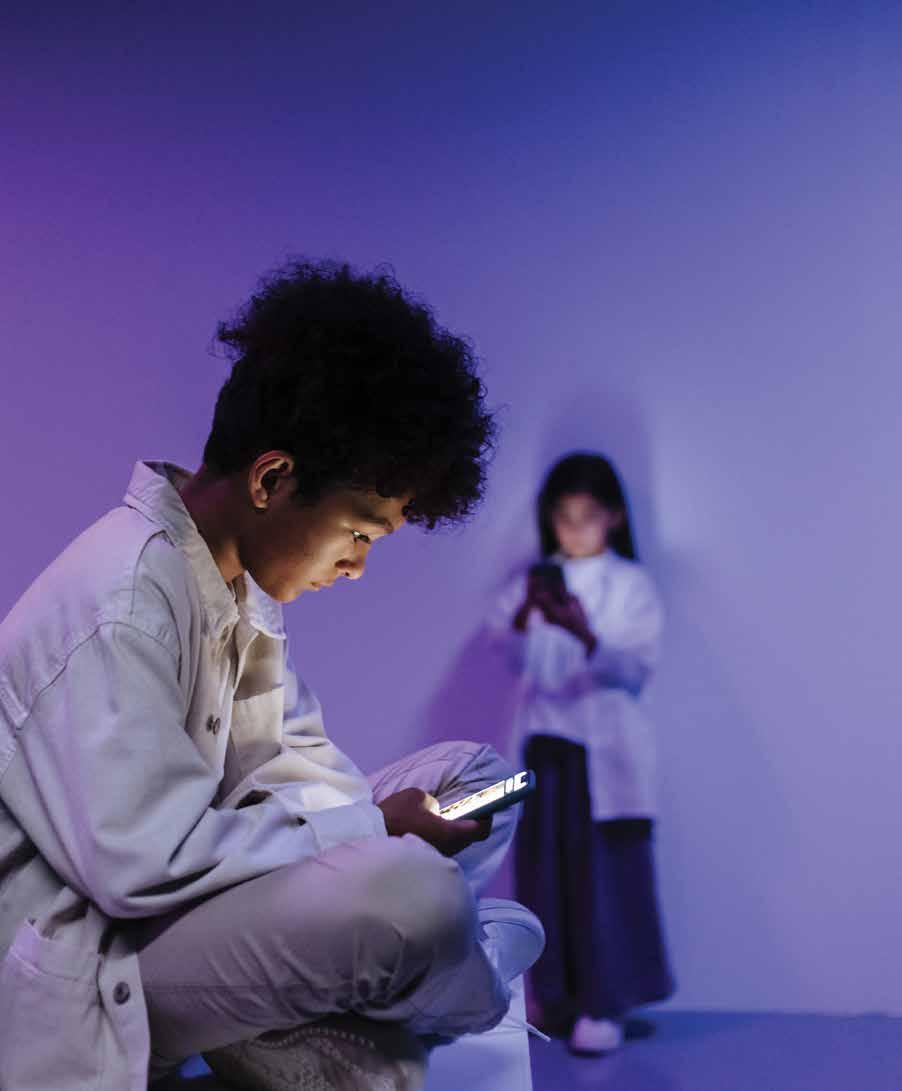
Navigating Kids’ Privacy in the Digital Age
By Allison Sutcliffe
A conversation with Devorah Heitner, Ph.D., author of ‘Growing Up in Public: Coming of Age in a Digital World’
When my firstborn child entered the world more than 15 years ago, I was captivated by everything he did. I fawned over his burbling coos and milk-drunk smiles, and delighted when he finally found the strength to sit up, despite his oversize head. I wanted to capture — and, most importantly, share — every single moment. With friends and family living far away, it wasn’t easy.
About six months after he was born, a longtime friend mentioned a hot new website that could help: Facebook. So, along with my Gen X cohort, I entered the world of social media without much thought and got down to posting my son’s precious moments.
Fifteen years and three kids later, I’m mulling over issues surrounding my kids’ privacy in an age when social media is ubiquitous and my kids speak TikTok and Snapchat fluently, despite not having a presence on either. As a family, we’ve pri-
oritized online safety and privacy while simultaneously watching our kids’ abilities to live private lives at home, with friends and at school slowly erode year after year. It feels nearly impossible to shield them from having their lives broadcast over the internet. Meanwhile, I’m working overtime to help them responsibly navigate this new world — where living publicly is now the norm.
So, when I had the chance to sit down with Devorah Heitner, Ph.D., author of “Growing Up in Public: Coming of Age in a Digital World,” I was eager to get her perspective on the topic.
Based on research, how has the way kids and parents thought about privacy changed over the past decade? What new challenges are we facing now?
First of all, the algorithms have gotten a lot better at getting all of our information. Plus, we’re getting accustomed to giving up our data for the convenience of having things selected for us. I do it, too, although I like to think I’m so self-aware. I’m sure there are ways I’ve compromised my privacy by sharing data that helps Spotify or Amazon know what I like. Certainly, social media, like TikTok, knows what you like; that’s what keeps you there. Apps like these are designed to influence our behavior and responses, and the companies know a lot about us.
I think parents and kids are more used to giving out their data
PARENTMAP / SEPTEMBER 2023 / 11
continued from page 11
than we were 10 years ago. We’re less skeptical. It feels sort of basic to us. Plus, the anxiety of the last few years — with the pandemic and other things — has also made us feel like there’s this trade-off with safety versus sharing our personal data. Certainly, AI and facial recognition have changed the game in the past decade, too.
are causing anxiety, try to put them on a less frequently checked device or put the password away in a drawer to reduce too frequent checking.
In the book, you write about exceptions to tracking kids online. When is it important to monitor kids’ online social presence?
When they’re new users, you may want to look at their communication together. For example, if you just got your middle schooler a phone, look at some of their texts together or ask them to show you examples of social media posts that are positive or not so positive, so you get a sense of their judgment and where they might need support.
What are the biggest misconceptions parents have about monitoring their kids online, and how can they adjust their thinking to avoid them?
A huge misconception is that you really can monitor your kids comprehensively and effectively online and know everything about what they are up to as a way to keep them safe. The more we let ourselves believe that, the more we might feel like we can opt out of some really crucial conversations.
Tracking kids can increase anxiety. Also, when kids feel oversurveilled, it can drive them underground. The last thing a parent wants is for their kid to feel like they have to hide from them, because if there is a problem, you want the lines of communication to be open.
Tracking grades and checking them too frequently can also make kids feel over-surveilled and can add stress and pressure to the relationship — especially if parents text kids while they’re at school or pounce on them when they walk in the door. If grading apps

Another situation that likely calls for more support and potential monitoring is if a kid is in crisis: being bullied, dealing with a serious diagnosis, coming home from an inpatient mental health stay or similar situations. Those are times that would probably need a more guided and supported reentry. I would suggest working with their therapist to figure out if temporarily monitoring or limiting access to social media makes sense — while they’re getting their feet under them — to ensure they can use it safely.
For parents of young children, what’s the best starting point for preserving and respecting their child’s privacy online? What should they consider?
From the very beginning, as you’re posting about your baby — or even about your pregnancy or adoption process — it’s important to think about who can see the posts and what information you’re sharing. Even something as simple as posting about a birthday has possible security risks — for example, the potential for identity theft.
As parents, we need to balance our joy in sharing and the number of people who are excited to see pictures and videos of our children with that child’s future as a human being, one who will have thoughts and feelings about the way their information was shared, and the way other people have been able to see and hear stories about them. It’s about balancing the present, when the child feels like an extension of us, with the future, when they’re going to have their own sense of how they want to be seen in the world.
As children get older, we may be tempted to share past posts with them: “Oh, I posted this cute video of you and you got a lot of likes.” Parents should think about what that communicates to
FEATURE
12 / PARENTMAP.COM
Even something as simple as posting about a birthday has possible security risks - for example, the potential for identity theft.
their kids and should definitely respect when kids start to resist having their picture taken. It’s important for parents to listen and let kids know that they can always opt out of being photographed or having things shared online, which may be really hard. But we have to remember our parents only took pictures of us a couple of times a year; our kids are much more documented than we were. Plus, even if your kid says no some of the time, you’re probably not going to get them all the way to adulthood with no images. You’re going to be okay.
So, many of the teens and tweens you spoke to for the book are figuring out ways to navigate their online life in a positive, healthy way. What can we learn from them?
That’s such a great question because kids are so thoughtful about who can see what they post, relative to adults. Conversations about sharing college admission results is a great example of the way kids are actually miles ahead in their thinking. One student shared, “If my friend applied early at the same place that I did, I’m not going to share the news that I got in or didn’t get in. I’m going to call them and we’re going to talk one on one before I share that publicly, so that we can process it together.”
In another example, kids were sharing college-rejection TikToks; they were also going out and meeting one another, celebrating their rejections together and supporting each other through the process. Adults tend to post about their news in a way that tries to be empathetic to other people’s feelings but can appear less sensitive, because sometimes it is hard to remember everyone who follows our posts.
Additionally, some teens are consciously curating their social media feeds in places like Instagram or TikTok to support ideas such as body positivity and pride in racial or ethnic identities. In these instances, kids recognize their own identities and find affirming spaces online, making sure their feed supports, affirms and reinforces their identity in a positive way. I think adults can learn from that. Sometimes we don’t realize there’s something toxic in the algorithm; we might be less savvy about it.
That’s not to say kids don’t need mentorship on this front, because they do. Many kids are not curating their feeds in this way and can use support. However, I did speak with a number of kids — especially teenagers ages 15 and older — who are very savvy about this.
If there’s one thing you want parents to take away from reading “Growing Up in Public,” what is it?
I hope we can consider how surveilling our kids can contribute to the challenges of growing up in the digital age and interrupt their crucial process of figuring out who they are. It’s hard enough for kids to figure out their identities and discover who they are when they’re shared and compared with peers. As parents, we want to avoid contributing to the problem by micromanaging them — by checking their grades all the time; by tracking their location; by sharing so much about them that we don’t give them a chance to figure out their own narrative.
Ultimately, kids are making the world so much better with the ways they share and break down boundaries surrounding what used to be taboo to share about ourselves. I think that’s such a huge piece of young adult and teen culture that adults can really learn from and support right now. ■
“Growing Up in Public: Coming of Age in a Digital World’” by Devorah Heitner, Ph.D., will be released Sept. 12.
Allison Sutcliffe is ParentMap’s managing editor.
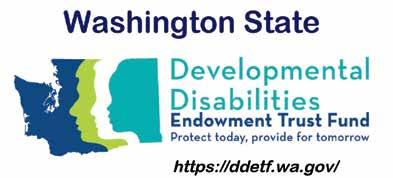

A flexible and convenient way for people living with disabilities to invest in their quality of life. Plan website: www.WashingtonStateABLE.com Customer Service Center: 1-844-600-2253 or 1-844-888-2253 (TTY) A flexible and convenient way for people living with disabilities to invest in their quality of life. WashingtonStateABLE.com • 1-844-600-2253 0420_wash_state_dept_commerce_1-8h.indd 1 3/6/20 12:26 PM 0920_state_WA_dept_commerce_1-8h.indd 1 8/17/20 12:49 PM
PARENTMAP / SEPTEMBER 2023 / 13
But we have to remember our parents only took pictures of us a couple of times a year; our kids are much more documented than we were.
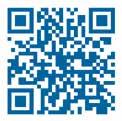


























positiveplace.org Sign-upnow! FallSports AN ANNUAL EVENT FOR FAMILIES Bernbaum Family Lecture Learn More & Register An inspired talk by the author of The Awakened Brain Sunday, October 15 | 10:00 AM Seattle campus & streaming online Outdoor seating • Serving the Green Lake community since 1979 rositasrestaurant.com Eat fresh tortillas. Make a mess. We’ll clean it up. BRING THE KIDS. 14 / PARENTMAP.COM
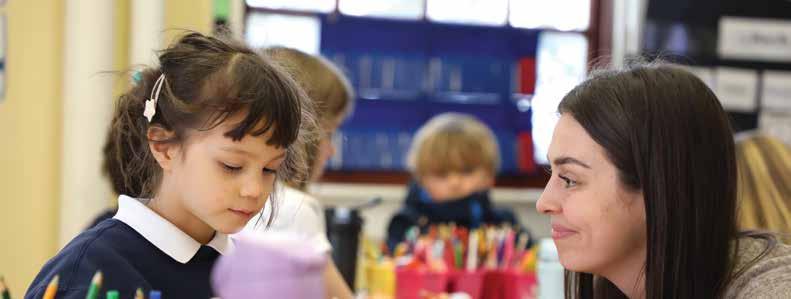


















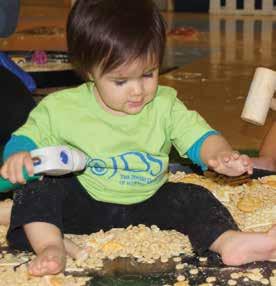
LOCAL RESOURCES / SCHOOLS, PRESCHOOLS + NWAIS Applications Open September 15 th Open House October 7 th C M Y CM MY CY CMY K Book your child’s spot today! 9:30-10:30 am on Wednesday mornings • 10/4-11/15 • 18 months-3 years $75 for all or $15 per class • reservations requested • space is limited wleberman@jds.org • 425.460.0260 • 15749 NE 4th Street, Bellevue Our creative, fun, and messy classes promote motor development and provide sensory exploration in a stimulating social environment. Inquire deeply...Engage joyously Preschool-Grade 8 PARENTMAP / SEPTEMBER 2023 / 15
How to Teach Critical Thinking Skills to Kids
Easy strategies to incorporate into everyday life
By Sanya Pelini, Ph.D.
In the late 1800s, Thomas Edison began working on a new kind of storage battery that he hoped would revolutionize the electrical industry. He wanted to create batteries that were lighter, more durable and much more powerful. He conducted thousands of tests and poured almost $1 million of his own money into the project.
In 1903, the battery was finished and made available to the public, which soon discovered that the promises made about the new apparatus fell far short of expectations. Battery leakages were reported by many consumers, making the devices practically useless, and those batteries that did not leak did not last as long as consumers had been led to believe.
This was a major setback for Edison, but he refused to believe that all hope was lost. Instead, he saw the predicament as an opportunity to practice critical thinking. He shut down the factory and over the next three years, he experimented with different materials to try to find a solution to the problem. He failed over and over again, but each failure led him to try a different approach to the problem. Through trial and error, he eventually discovered that adding a small amount of alkaline to the acid prevented leaks.
Thanks to his critical thinking skills and his perseverance, Edison eventually succeeded in developing a battery that was far better than the original one. These skills laid the groundwork for many other important inventions.
Edison’s ability to approach problems with an open mind — and his willingness to experiment and try new things — explains why he is remembered as one of the greatest inventors of all time.
As a parent or educator, you may have asked yourself whether it is possible to teach critical thinking skills to children. In other words, are these skills inborn or can they be developed?

What science says about critical thinking skills
Several researchers refer to the ability to acquire critical thinking skills as the “development of a mind of one’s own.”
LOCAL RESOURCES / SCHOOLS, PRESCHOOLS + NWAIS
16 / PARENTMAP.COM
Critical thinking is about being able to look at an issue or problem from different angles. Being a critical thinker requires kids to keep an open mind, to be able and willing to see things from different perspectives, and to trust in their ability to find a solution to their challenges.
Critical thinkers are therefore curious experimenters who are not afraid to fail or who see failure as an opportunity to learn new things.
Does critical thinking come more naturally to some kids than to others? Possibly so. But science indicates that kids primarily learn to become critical thinkers when they practice these skills.
Many of the researchers who have focused on the development of critical thinking skills suggest that children develop thinking skills more easily when an intentional attempt is made to promote those skills.
Some studies have found that children taught using a critical thinking approach become better at solving problems. Others have determined that teaching thinking skills may increase the ability to reason, use language, solve problems, be inventive and make decisions.
The good news is that it is possible to teach critical thinking skills at home. Here are some easy tips to get started.
How to incorporate critical thinking skills into your child’s everyday life
1. Ask questions. The more you make it a habit to ask your child questions, the more you help them practice their critical thinking skills. That said, it is important to avoid questions that prompt straightforward “yes” or “no” responses. So, instead of asking, “Did you have a good day?” try something along the lines of “What was the most interesting thing you did today?”
Making it a habit to ask for your child’s opinion — “What do you think?” or “How are you going to do it?” — is an easy way to make them reflect on possible responses and solutions.
2. Ask your child to put things into their own words. One of the easiest ways to teach critical thinking skills is to ask your child to use their own words when expressing themselves. For example, after watching a movie together, inquire: “What did you understand?” “What did you learn from the story?” “What did you think of his/her reaction?” “What would you do if you were in their shoes?”
3. Prioritize play with open-ended toys. Open-ended toys are great playthings because they encourage creativity. Your child can engage with them in many different ways, which means that they are encouraged to come up with new ways to interact with the same toys. Toys such as building blocks or nesting puzzles (for younger kids) and KAPLA or KEVA planks (for older kids) are
good examples of toys that can help increase your child’s creativity and therefore their critical thinking skills.

4. Provide an environment that favors the development of critical thinking skills. By allowing your child to participate in the decision-making process, and by accepting their solutions even when your view differs, you help them to practice their critical thinking skills. Do not rush in to help your child find a solution: Let them think of ways to solve problems on their own.
5. Ask your child to come up with alternative solutions or explanations. Ask: “How else can you do it?” “What will you do next time?” “How would you do it?” “What would you do differently?”
6. Play games that require critical thinking skills: Playing Scrabble, chess or sudoku is an easy way to help your child strengthen their critical thinking skills.
Remember that modeling critical thinking is one of the most effective ways to teach those skills to your child. This could be in the form of asking questions, considering alternative solutions, showing your openness to different views and opinions, or even working together (and considering their proposals) to solve a problem. ■

Sanya Pelini, Ph.D., transforms educational research into practical tools and resources on her blog Raising Independent Kids (raising-independent-kids.com).

LOCAL RESOURCES / SCHOOLS, PRESCHOOLS + NWAIS 206-282-3848 • discoverymontessorischool.org • Community in school and service in our community • Individual education in a prepared environment • School Year September to June • Summer Session July to August • Ages 2.5 to 6 years in 2 classrooms • Outdoor education and play on site FD20_Discovery_Montessori_School_1-8h.indd 1 7/27/20 11:57 AM
PARENTMAP / SEPTEMBER 2023 / 17


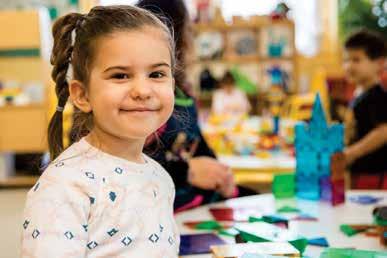














LOCAL RESOURCES / SCHOOLS, PRESCHOOLS + NWAIS Nationally Recognized for Quality APPLICATIONS FOR 2023-2024 NOW OPEN! Visit seattle.gov/applySPP to apply online. (206) 386-1050 preschool@seattle.gov Be Kindergarten Ready! Most Families MostFamilies Qualify for Qualifyfor Free or Reduced FreeorReduced Tuition Tuition Extended-Day Extended-Day Child Care ChildCare Options Spots Still SpotsStill Available Available samenA SAMENA PRESCHOOL 425.746.1160 SAMENA.COM NOW ENROLLING FLEXIBLE PROGRAMMING SWIMMINGSPANISH MUSIC Experience intheSouthSound! intheSouthSound! 18 / PARENTMAP.COM
Unlocking POTENTIAL | Transforming FUTURES
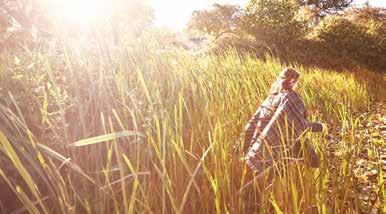
COED | GRADES 6 - 12 | CATHOLIC | SMALL CLASS SIZE | COLLEGE PREP INSPIRING TEACHERS | TUITION ASSISTANCE | BUS SERVICE
OPEN HOUSE DATES: OCT. 8, NOV. 5 & JAN. 10


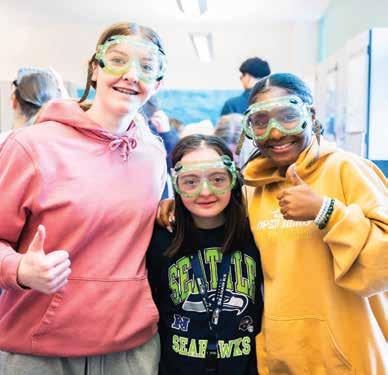
Learn More & Register: eastsidecatholic.org/visit
Joyful Learning
Bellevue Campus 10723 NE 38th Pl, Bellevue, WA 98004 New Toddler Program!
Ages 2-6
425-822-6001
info@chestnutmontessori.com chestnutmontessori.com

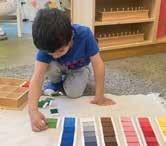
• 1:1 (one teacher: one student) and small groups
• Grades 4 through 12
• Academically rigorous with personalized pace
• Wide range of courses including core academics, 3D printing, world languages and more
yellowwoodacademy.org

info@yellowwoodacademy.org

Kirkland Campus 10239 Slater Ave NE, Kirkland, WA 98033
Ages 2-6
Become a credentialed Montessori Teacher!
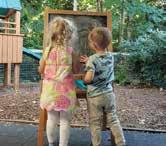
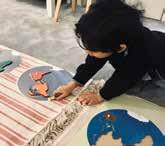

425-822-6233
info@montessoriteachereducation.org


Visit PARENTMAP / SEPTEMBER 2023 / 19

LOCAL RESOURCES / SCHOOLS, PRESCHOOLS + NWAIS
At YWA, we provide every student with the tools and encouragement needed to pursue their own personal journey.
LM22_yellow_wood_1-4.indd 1 8/23/22 10:48 AM
montessoriteachereducation.org our website to schedule a tour! 0923_chestnut_montessori_1-2v.indd 1 8/15/23 6:00 PM

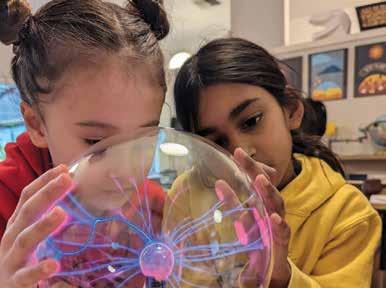




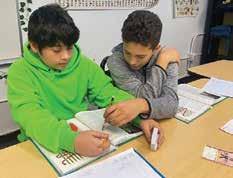






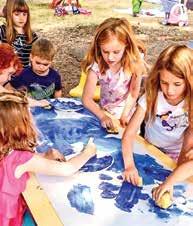
LOCAL RESOURCES / SCHOOLS, PRESCHOOLS + NWAIS @etonschool.washington @EtonSchoolWA etonschoolwa 2701 Bell-Red Road Bellevue WA 98008 425-881-4230 Accepting Applications: P3 (Age 3)-Grade 8 Schedule a tour to learn about our program and get answers to questions! www.etonschool.org/admissions Age 3–Grade 8 Age 3–Grade 3 FOUNDATIONS GRADES 2-8 MIDDLE SCHOOL GRADES 6-9 FULL YEAR & SUMMER SCHOOL info@morningsideacademy.org New location! Fall 2023-2024 0623_morningside_academy_1-4.indd 1 5/11/23 1:23 PM Follow us on social media Discover the latest parenting tips, tricks, adventures, activities and more! @parentmap woodinvillecds.com • Preschool Ages 2½ – 6 • Summer Camps • Fall Focus Camps 0923_woodinville_country_day_1-8h.indd 1 8/16/23 10:16 PM 20 / PARENTMAP.COM
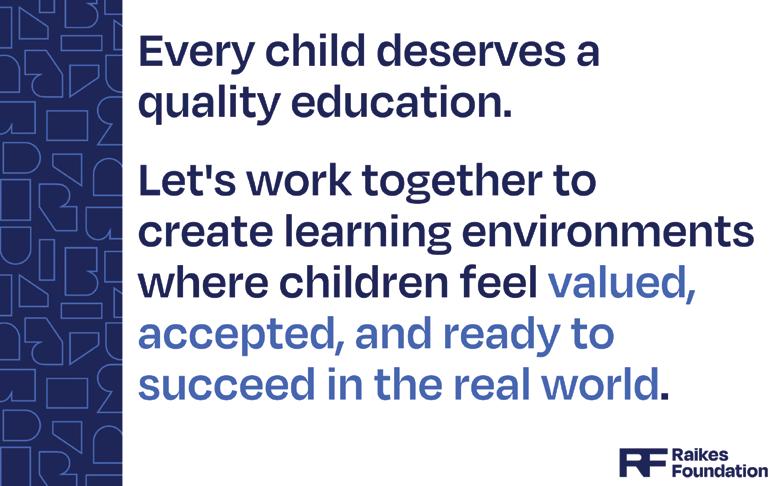


PARENTMAP / SEPTEMBER 2023 / 21
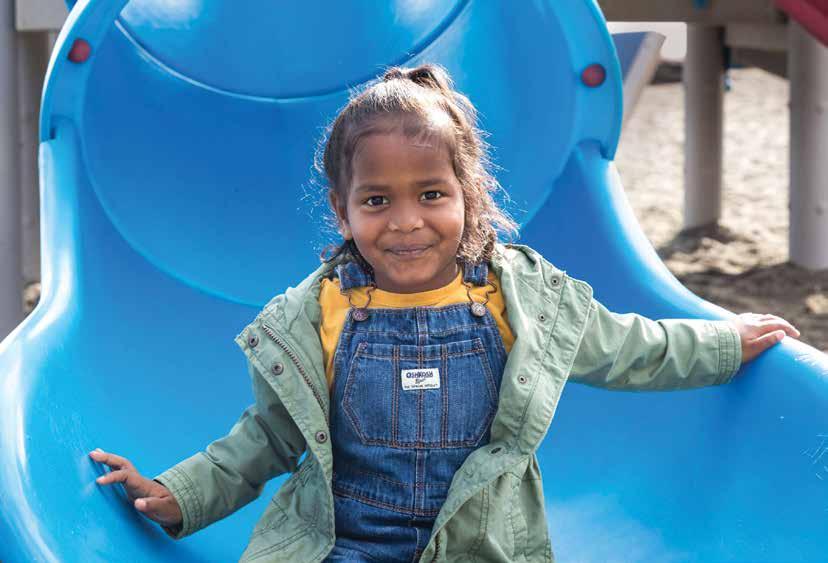
Keep your family safe and healthy Scan the QR code below to sign up for Seattle Children’s Good Growing e-newsletter. Each issue shares timely tips to keep your family as safe and healthy as they can be. Hope. Care. Cure.™ Seattle Children’s is proud to be the presenting sponsor of the 2023–2024 ParentEd Talks series
Children’s 22 / PARENTMAP.COM
Radhika, patient at Seattle











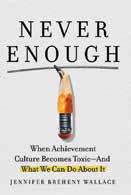
Don’t miss out! ParentMap’s ParentEd Talks series returns in September with a tremendous lineup of expert speakers who will help boost your parenting IQ. Topics include tips for raising technology-savvy kids in a screen-obsessed world; deepening connection with our partners and children; fostering the key traits and habits that are predictors of children’s success and good health — and much more. Don’t miss out! One quick registration gains you access to the entire lineup. Parent smarter, not harder! 13 can’t-miss talks for parents SPECIAL THANKS TO OUR SUPPORTERS PRESENTING SPONSOR: PLATINUM EVENT PARTNER Turn the page to see the full slate of all-star speakers and topics REGISTER NOW: ParentMap.com/talks BONUS! FREE access to interview with author of “Never Enough” with one-click registration. First 25 receive book!
Upcoming ParentEd Talks
ParentMap is honored to present Laura Kastner, Ph.D., as the host of its 2023–2024 ParentEd Talks series.


Kastner is the author of a number of parenting books, including the acclaimed “Getting to Calm” series, and a clinical professor of psychiatry and behavioral sciences at the University of Washington.
ParentEd Talks welcomes new host, Laura Kastner, Ph.D.

Reclaiming the Past to Build a Better Future: A History of Racism in America | Sept. 18, 2023
ParentMap is honored to present Laura Kastner, Ph.D., as the host of its 2023–2024 ParentEd Talks series. Kastner is the author of a number of parenting books, including the acclaimed “Getting to Calm” series, and a clinical professor of psychiatry and behavioral sciences at the University of Washington.
Khalil Gibran Muhammad, Ph.D., one of the nation’s leading scholars on the history of race, democracy and criminal justice, will articulate how the enduring legacy of anti-Black racism has forged America as a nation, revealing new vision for an equitable society, now and in the future, can only be seen through an honest lens of history.
Reclaiming the Past to Build a Better Future: A History of Racism in America | Sept. 18, 2023


Differently Wired: Deepening Connection With Your Atypical Child | Oct. 10, 2023
Khalil Gibran Muhammad, Ph.D., one of the nation’s leading scholars on the history of race, democracy and criminal justice, will articulate how the enduring legacy of anti-Black racism has forged America as a nation, revealing how a new vision for an equitable society, now and in the future, can only be seen through an honest lens of history.
Differently Wired: Deepening Connection With Your Atypical Child | Oct. 10, 2023
When parents are struggling with challenging behavior or having a difficult time accepting their child’s neurodivergence, the parent-child relationship can suffer. Parent activist and bestselling author Debbie Reber will share transformative strategies — what she calls “tilts” — for caregivers to become the exceptional parent that their exceptional child in order to thrive.
When parents are struggling with challenging behavior or having a difficult time accepting their child’s neurodivergence, the parent-child relationship can suffer. Parent activist and bestselling author Debbie Reber will share transformative strategies — what she calls “tilts” — for caregivers to become the exceptional parent that their exceptional child needs in order to thrive.
The Power of Relationships: Nurturing Compassion and Resilience in Our Children | Oct. 24, 2023
The Power of Relationships: Nurturing Compassion and Resilience in Our Children | Oct. 24, 2023
One of the strongest predictors of success in life is perseverance, and Sam Goldstein, Ph.D., and Robert B. Brooks, wrote the book on how parents can cultivate the essential instincts that power perseverance in their children. Brooks and Goldstein’s compassionate approach will inspire you to rethink how you parent, socialize and educate your children into adulthood.
One of the strongest predictors of success in life is perseverance, and Sam Goldstein, Ph.D., and Robert B. Brooks, Ph.D., wrote the book on how parents can cultivate the essential instincts that power perseverance in their children. Brooks and Goldstein’s compassionate approach will inspire you to rethink how you parent, socialize and educate your children into adulthood.
Promise and Peril: Emerging AI Technologies in Education | Nov. 14, 2023
Promise and Peril: Emerging AI Technologies in Education | Nov. 14, 2023

Christine Rosen, Ph.D., a leading expert on the intersection of technology and education, will share her insights groundbreaking — and disruptive — impacts of emerging generative AI technologies such as ChatGPT, illuminating ways parents and educators can help children safely navigate the positive potentials and possible pitfalls of AI.
Christine Rosen, Ph.D., a leading expert on the intersection of technology and education, will share her insights on the groundbreaking — and disruptive — impacts of emerging generative AI technologies such as ChatGPT, illuminating the ways parents and educators can help children safely navigate the positive potentials and possible pitfalls of AI.
Screen Schooled: Raising Screen-Savvy Kids in an Era of Technology Overuse | Dec. 6, 2023
Screen Schooled: Raising Screen-Savvy Kids in an Era of Technology Overuse |
Dec. 6, 2023
Joe Clement and Matt Miles are veteran teachers who have witnessed firsthand how damaging technology overuse and misuse has been to our kids. In this energizing talk, they will outline the challenges of raising screen-savvy and provide practical strategies for promoting well-balanced technology habits.
Joe Clement and Matt Miles are veteran teachers who have witnessed firsthand how damaging technology overuse and misuse has been to our kids. In this energizing talk, they will outline the challenges of raising screen-savvy kids and provide practical strategies for promoting well-balanced technology habits.
Brave Listening: The Secret to Safeguarding Your Child’s Mental Health | Jan. 10 2024
Brave Listening: The Secret to Safeguarding Your Child’s Mental Health | Jan. 10 2024








In this essential talk, suicide risk assessment expert Stacey Freedenthal, Ph.D., LISW, will guide parents through the sensitive and challenging topic of supporting their child’s mental health. Among the powerful strategies Freedenthal will outline is brave listening, which not only helps our children feel seen, heard and supported, but can literally be the difference between life and death.
In this essential talk, suicide risk assessment expert Stacey Freedenthal, Ph.D., LISW, will guide parents through sensitive and challenging topic of supporting their child’s mental health. Among the powerful strategies Freedenthal will outline is brave listening, which not only helps our children feel seen, heard and supported, but can literally the difference between life and death.
ParentEd Talks welcomes new host, Laura Kastner, Ph.D.
How the Power of Play Cultivates Healing and Resilience | Jan. 23, 2024
Amelia Bachleda, Ph.D., and Marley Jarvis, Ph.D., child development specialists from the Institute & Brain Sciences, will join Mike Browne, senior director of Community Engagement for Cultivate University of Washington, for an engaging conversation about the brain science of play and play in our lives.
How the Power of Play Cultivates
criminal revealing how a history.
Healing and Resilience | Jan. 23, 2024 neurodivergence, transformative child needs
Amelia Bachleda, Ph.D., and Marley Jarvis, Ph.D., child development specialists from the Institute for Learning & Brain Sciences, will join Mike Browne, senior director of Community Engagement for Cultivate Learning at the University of Washington, for an engaging conversation about the brain science of play and the critical role of play in our lives.
Positive Parenting: Conscious Discipline Strategies for More Peaceful Days | Feb. 6,





Parenting expert and Sproutable cofounder Julietta Skoog, Ed.S., will share her conscious discipline talk that compassionately translates research, child development expertise and Positive everyday parenting solutions that have helped countless families discover greater joy, connection



Positive Parenting: Conscious Discipline Strategies for More Peaceful Days | Feb. 6, 2024
Technology’s Child: Empowered Parenting in the Digital Age | March 5, 2024
Parenting expert and Sproutable cofounder Julietta Skoog, Ed.S., will share her conscious discipline playbook in this talk that compassionately translates research, child development expertise and Positive Discipline principles into everyday parenting solutions that have helped countless families discover greater joy, connection and calm.
Technology’s Child: Empowered Parenting in the Digital Age | March 5, 2024
From toddlers exploring their immediate environment to twentysomethings charting their children’s “screen time” and digital social relationships have become an inescapable aspect Professor and author Katie Davis, Ph.D., draws on her expertise in developmental science to clarify what parents need to understand about technology’s role at each stage of their
From toddlers exploring their immediate environment to twentysomethings charting their place in society, children’s “screen time” and digital social relationships have become an inescapable aspect of growing up. Professor and author Katie Davis, Ph.D., draws on her expertise in developmental science and design research to clarify what parents need to understand about technology’s role at each stage of their child’s development.
Beyond Resilience: Raising the Next Generation of Anti-Oppression Leaders | March
Brooks, Ph.D., children. educate insights on the illuminating the AI.
Beyond Resilience: Raising the Next Generation of Anti-Oppression Leaders | March 27, 2024


In this thought-provoking talk, Freedom Project executive director David Heppard and T.E.A.C.H. and Creating History) founder Kimonti Carter will decode the systems that shape the ways others, reflecting on the wisdom they gained from their experience of incarceration and working toward criminal justice and prison reform.


In this thought-provoking talk, Freedom Project executive director David Heppard and T.E.A.C.H. (Taking Education and Creating History) founder Kimonti Carter will decode the systems that shape the ways we see ourselves and others, reflecting on the wisdom they gained from their experience of incarceration and subsequent leadership working toward criminal justice and prison reform.
Stronger Together: A New Model for Modern Marriage | April 16, 2024
Stronger Together: A New Model for Modern Marriage | April 16, 2024
Nate and Kaley Klemp, two of the most respected voices in the field of modern relationships, insights of their 80/80 marriage model, which is based on the concept of “radical generosity.” game-changing strategies for redesigning the structure of your partnership based on practices that will result in shared success and lasting satisfaction.
Nate Kaley Klemp, two of the most respected voices in the field of modern relationships, will impart key insights of their 80/80 marriage model, which is based on the concept of “radical generosity.” Learn game-changing strategies for redesigning the structure of your partnership based on practices and principles that will result in shared success and lasting satisfaction.
The Quantum Power of Self-Nurturing for a Balanced Life | May 1, 2024
The Quantum Power of Self-Nurturing for a Balanced Life | May 1, 2024
overuse
screen-savvy kids
series. Calm” Washington. through the Freedenthal literally be
To best nurture others, we must expand our capacity to nurture ourselves. In this can’t-miss talk, veteran mindful self-compassion facilitators Blair Carleton and Yaffa Maritz, LMHC, will teach caregivers how to cultivate a habit of restorative self-compassion, equipping them with powerful techniques for developing greater self-awareness, self-reflection, self-care and emotional resilience.
To best nurture others, we must expand our capacity to nurture ourselves. In this can’t-miss self-compassion facilitators Blair Carleton and Yaffa Maritz, LMHC, will teach caregivers how of restorative self-compassion, equipping them with powerful techniques for developing self-reflection, self-care and emotional resilience.


Calm and Connected: Coping Skills for Kids in High-Anxiety Times | June 5, 2024
Calm and Connected: Coping Skills for Kids in High-Anxiety Times | June 5, 2024
Mental health counselor and author Janine Halloran, LMHC, will draw on her decades of experience working with children and families to impart practical and effective strategies to help kids and teens develop the coping, self-regulation and social skills they need to manage stress, reduce anxiety and manage other common mental health challenges.
Mental health counselor and author Janine Halloran, LMHC, will draw on her decades of experience with children and families to impart practical and effective strategies to help kids and teens self-regulation and social skills they need to manage stress, reduce anxiety and manage health challenges.
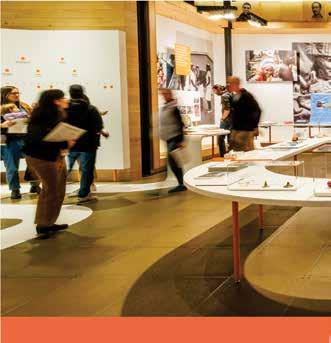







26 / PARENTMAP.COM
Out + About
Soft-Pedaling: A Rail Cycling Adventure at Mount Rainier
Discover this unique way to experience nature — and get a little exercise, too
By Vicky McDonald
Sunny summer and early fall weekends are the ideal time for an adventure with the kids that veers off the beaten path. At the start of every summer, my family and I make a bucket list that’s jam-packed with all the stuff we want to do each weekend.
This summer, the new RailCycle Mt. Rainier tour (railcycle.com) was at the top of the list. The family attraction kicked off earlier this year, and it’s like no other adventure ride we’ve been on.
On this outing, families roll through the forest on a unique rail bike while catching glimpses of the Nisqually River and majestic Mount Rainier. If you’re looking for a unique and relaxing excursion with kids, this new attraction is well worth checking out.
What is a rail cycle?
A rail cycle, or rail bike, is a specially designed human-powered vehicle that runs on railroad tracks. It’s sort of a cross between a bicycle and an old-fashioned railroad handcar, with a bit of pedal boat thrown in. A rail cycle is propelled by pedaling, and one rail cycle can accommodate as many as four riders at once.
A rail cycle tour, with the power of riders’
legs as the engine, carries families on a journey through serene landscapes. Traveling on train tracks allows riders to take in scenes that would otherwise remain hidden from regular tourist routes.
Mt. Rainier Scenic Railroad (mtrainierrailroad.com) operates RailCycle Mt. Rainier. This organization previously offered train excursions in the same area — and will again this fall (more on that below). The rail cycle tour follows an
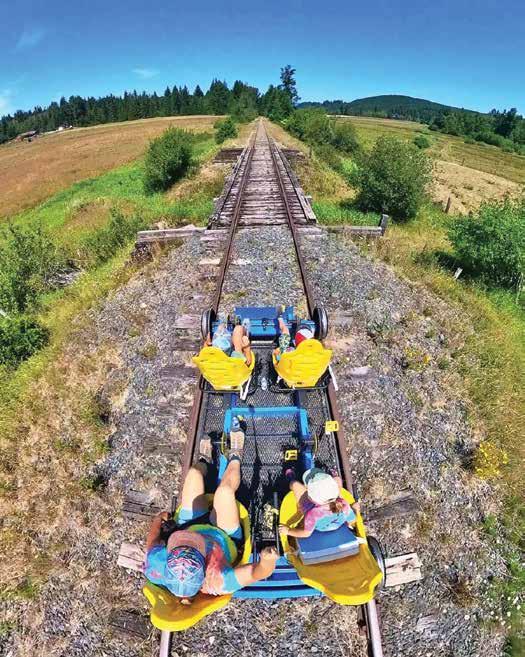 Photo courtesy of Mt. Rainier Scenic Railroad
Photo courtesy of Mt. Rainier Scenic Railroad
PARENTMAP / SEPTEMBER 2023 / 27
Helping Kids Thrive for Life
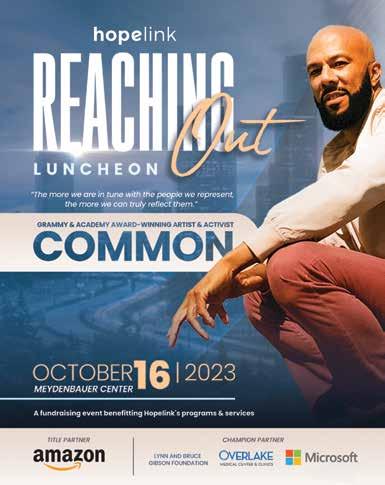


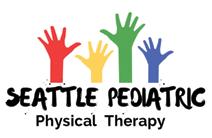
continued from page 27
isolated track, upon which there is no chance of a train running. The tour departs from a spot near Eatonville, Washington, and takes riders on a 1.5-mile pedal through the forest.
Is RailCycle Mt. Rainier suitable for young kids?

My kids are 5 and 7 years old, and we were excited to try out this novel way of traveling. When we arrived, the company had booster seats available for us to use. These booster seats are easily strapped onto the yellow plastic seats of the rail cycles. With the booster, my 7-year-old was all set to pedal along with us, joining in the fun — and contributing some of the power.
My 5-year-old, however, couldn’t reach the pedals even with the booster. Fortunately, it wasn’t a problem. She absolutely loved the ride and was thrilled to be a part of the adventure, even without pedaling.
The rest of us — my husband, our son and I — worked together and had a blast pedaling our rail cycle, while our daughter enjoyed the ride. We spotted a couple with a young baby in a carrier on the tour, and they

OUT + ABOUT
We Treat: Motor Development • Youth Sports Injuries • Torticollis BOOK ONLINE! seattlepediatricpt.com 0923_seattle_pediatric_1-4.indd 1 7/6/23 2:11 PM
28 / PARENTMAP.COM
Photo by Vicky McDonald
also seemed to be having fun. (According to the RailCycle Mt. Rainier website, babies weighing less than 25 pounds may ride with an adult in a front-style harness or carrier, so long as parents can buckle their seatbelt.)
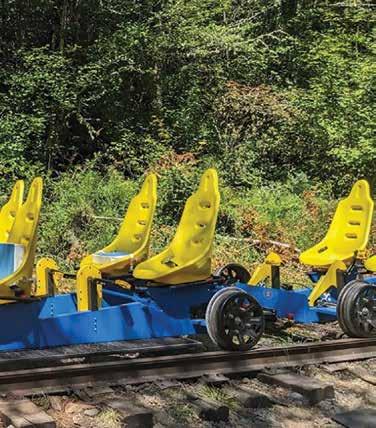
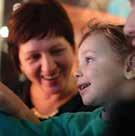
All in all, there were people of all ages on the tour, and everyone appeared able to keep up.
Safety first

Before we hopped on our rail cycle, our guides gave us a quick and clear safety briefing. They told us about the route we would be taking, the planned stops along the way and the importance of maintaining a safe distance from other rail cycles.
As soon as the briefing wrapped up, we adjusted our seats to ensure comfort, hopped on and started pedaling away, eager to begin our adventure through the scenic surroundings.
First impressions

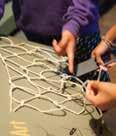
The initial part of the ride was a downhill stretch, making it superfast and requiring minimal pedal power. I was surprised by how noisy the rail cycles were,













. HibulbCulturalCenter.org CRAFT EVENTS AND MORE! the history and culture of the Tulalip Tribes
PARENTMAP / SEPTEMBER 2023 / 29
continued from page 29
making it difficult to chat with my kids. Nevertheless, it turned out to be an exhilarating experience as we sat back and took in the wonderful views, sounds and scents of the forest while whooshing along the rails.
I found the route remarkably unspoiled, offering beautiful vistas of the countryside, with colorful wildflowers and fluttering butterflies. Although we caught a fleeting glimpse of Mount Rainier, it was somewhat obscured by the trees. Fair warning: If you go in expecting breathtaking views of the mountain, you might be a little disappointed. There is a nice view of Mount Rainier from the rest stop at the beginning of the tour if you are really hoping for that photo!
The rest stop
After approximately 30 minutes of riding, we reached the turnaround point of the tour and took a break at some picnic tables in the forest. There is one camp toilet here, but note that there are no other facilities available at this spot. You will want to come prepared with snacks, water and sunscreen. Luckily, there is ample space on your rail cycle to accommodate a backpack in which you can tote snacks and water for the journey. (Additionally, there is a store at the check-in desk that offers a few snacks for purchase.)
During this 35-minute break, the employees turned our rail cycles around for the return trip. While it was a necessary task, it did take a fair amount of time. At this point, I couldn’t help but wish that an extra staff member was present to engage us with interesting facts about these railroad tracks, Mount Rainier or the local area’s history and industry. The rest stop was fine, but it seemed to me that the time spent waiting could have been better used.
The journey back
The journey back required a lot more pedal power. That said, it was nice to have that slower pace to appreciate the wildflowers, the elk and the cattle grazing in the fields — not to mention the gorgeous mountains. The slower pace meant it was a little less noisy and it was easier to take photos and converse. We saw that other riders even picked wildflowers on the route back.
The verdict from the backseat
The kids absolutely adored this one-of-a-kind way of exploring the countryside. My son loved pedaling our rail cycle, while my daughter, although unable to reach the pedals this time, is already looking forward to next year when she hopes to join in the pedaling fun.
If you go ...
Find it: RailCycle Mt. Rainier tours departs from 13203 Alder Mashel Connection Rd. E. in Eatonville. Eatonville is a town in Pierce County located about a 1.75-hour drive from Seattle or Bellevue, and about an hour from Tacoma. (Note that this is not the same departure point as Mt. Rainier Scenic Railroad train excursions, which leave from nearby Elbe.)
Booking: Book your timed-departure tickets online. Multiple departure times are available Tuesday–Sunday through summer. Weekend excursions are available through October.
Cost: All of the rail cycles have four seats. A full rail cycle of four riders costs $161.25. Your group of three can also share a bike with a RailCycle Mt. Rainier guide for $120. Another option is to share a rail cycle with another couple (you book two seats) for $86.

If you are a family or group of five or more, the company recommends booking one four-seat rail cycle and then booking an additional shared cycle (two- or three-seat options). Your family or group can be placed in adjacent cycles for the excursion.
How long is the trip? Families are directed to arrive 20 minutes prior to the departure time. The entire experience lasts about two and a half hours, including the safety orientation, outbound pedal, 35-minute rest stop at the turnaround point and the return trip.
What to bring: Snacks, water, hats, sunscreen, insect repellent and appropriate outdoor gear. Closed-toe shoes are better for cycling. The company did offer shade/umbrellas if anyone needed it. RailCycle Mt. Rainier tours run rain or shine, so bring wet-weather gear if you go on a drizzly day.
Good to know: Children may not ride in an adult’s lap during the rail cycle excursion, with the exception of babies weighing less than 25 pounds who are held in a carrier. All riders must be buckled up. There is a maximum weight of 300 pounds per rider on the rail cycles. RailCycle Mt. Rainier is working to design an accessible rail bike — and is welcoming community input if you’d like to offer ideas about this.
Parking: There’s a small parking lot at the check-in area. There are some picnic tables, portable toilets, and a store selling drinks and snacks.
OUT + ABOUT
30 / PARENTMAP.COM
The verdict from the front seat
Overall, the tour was well organized and an enjoyable experience. The tour is relatively short if you are driving all the way from Seattle, but I think it’s probably long enough if you have young kids.
The only thing I felt was missing was a little more interactivity. At the check-in center, there was a poster with a QR code providing details about railroad history, which was a nice touch. I think it would be fantastic if, during the rest stop, someone from the staff could share this information in a more engaging and interactive manner, bringing the area’s history alive for us.
Despite that minor criticism, the entire experience was memorable, and the kids’ excitement and enjoyment made it a day well spent on our RailCycle Mt. Rainier adventure. ■

When not working, former ParentMap digital editor Vicky McDonald can be found running after her two kids or cooking up something tasty in the kitchen.
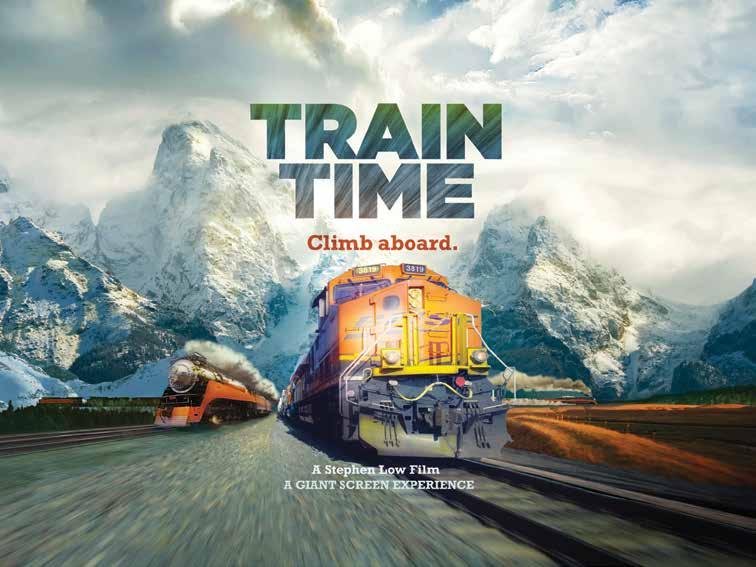
NOW PLAYING IMAX® is a registered trademark of IMAX Corporation. Get your tickets at pacsci.org/imax. Train Time
PARENTMAP / SEPTEMBER 2023 / 31
Photo by Vicky McDonald
September Play List
Savor Summer’s Last Glorious Days
By Nancy Chaney
Check out many more happenings online at parentmap.com/calendar.

Oh, September, you are tops in our book! You usher the kids back to school while still offering up the beautiful blue-sky days that are ideal for Pacific Northwest family adventuring. Friends, let’s gather the crew and head to the beach, to the fair, to the farm! These outing ideas and others will make this a September to remember.
� Take a short ferry ride to one-of-a-kind Jetty Island to play in the sand and splishsplash in the warm(ish) waters, through Sunday, Sept. 3. Go online to reserve your spot on the ferry. parentmap.com/jetty
� Saddle up and head over the mountains for thrilling rodeo action and county fair fun in Ellensburg. City slickers are welcome at the Kittitas County Fair and Ellensburg Rodeo through Monday, Sept. 4. Fair admission $6–$10; rodeo events $24 and up (tickets include fair entry). parentmap.com/rodeo
� Frolicking among giant sunflowers is another let’s-

keep-summer-going activity. Sunflower festivals continue most weekends throughout the month. Pick a farm, pick some flowers and take beautiful photos of your favorite kids. parentmap.com/sunflowers
� September means that it is time to do the Puyallup! The Washington State Fair is a tradition for so many families. Brave the carnival rides, savor fair treats, admire animal exhibits and more. The fair is held Sept. 1–24 this year (closed Tuesdays as well as Wednesday, Sept. 6). Gate admission $12–$18; ages 5 and younger free; shows and rides extra. Discount for online purchase; additional deals available. parentmap.com/the-fair
� It’s the last chance this year to take advantage of Regal’s cheap summer movies deal. Book your tix for Tuesday–Wednesday, Sept. 5–6, to catch “Despicable Me 3” or “Spirit Untamed” at a local participating theater. All tickets $2. parentmap.com/regal
FAMILY FUN
32 / PARENTMAP.COM
Highlighted Events for September
Sept. 1–24
Washington State Fair
Washington State Fair Events Center, Puyallup parentmap.com/the-fair
� Motor on over to the truck lover’s paradise happening at Spanaway Park. At this free Touch-A-Truck event, kids get to climb on, “drive” and honk the horns of many of the awesome big rigs they see out on the roads. Saturday, Sept. 9, 10 a.m.–1 p.m. (horn-free hour, noon–1 p.m.). parentmap.com/ touch-a-truck
� Calling all Lego fans! Gather with fellow Lego enthusiasts for BrickCon 2023, at a new location this year, in Bellevue. Admire models built by superfans and take inspiration for your own creations. Saturday–Sunday, Sept. 9–10, at Meydenbauer Center. Tickets $16–$18.50. parentmap.com/brickcon
� There’s a farm right in the city of Seattle? Yep, it’s the Rainier Beach Urban Farm &
Sept. 16 | Saturday
Farm Fest
Rainier Beach Urban Farm & Wetlands, Seattle parentmap.com/farm-fest
Wetlands. Stop by for a community fest celebrating local food, city farming and healthy living. Meet some llamas, hear some stories and ride the smoothie bike on Saturday, Sept. 16, 10 a.m.–3 p.m. Free entry; food for purchase. parentmap.com/farm-fest
� Celebrate the various cultural traditions and cuisines of Latin America represented in our local community. Sea Mar Fiestas Patrias welcomes all to enjoy food demos, kids’ activities, folkloric performances and more. Join the party at Seattle

camp scholarships for kids. Sunday, Sept. 17, 10 a.m.–5 p.m. Free entry; food and some activities for purchase. parentmap.com/apple-festival
� ParentMap welcomes back Harvard professor Khalil Gibran Muhammad, Ph.D., for another essential talk on understanding the history of anti-Black racism in the United States and its continuing effect on our society today. Monday, Sept. 18, 1 p.m. parentmap.com/talks
� Head for the hills to explore one of our state’s beautiful state or national parks on Saturday, Sept. 23, when entrance fees to national parks are waived and you can park in a state park without a Discover Pass. parentmap.com/free
� Super-fun kindie rockers The Not-Its! kick off Town Hall Seattle’s returning Saturday Family Concert series. This band’s catchy tunes will have the kids on their feet, dancing and singing along to songs
Sept. 18 | Monday
ParentEd Talks: Khalil Gibran Muhammad, Ph.D.
Online parentmap.com/talks
about scabs, pajamas, brain freezes and the like. Saturday, Sept. 23, 11 a.m. Kids free; grown-ups pay $5. parentmap.com/family-concerts
� Bring your appetite and gather with other enthusiasts to partake in the culture, arts and food of Italy. Additional Italian Festival features include a car show, a dog show and the popular grape stomp. Saturday–Sunday, Sept. 23–24. Free.
parentmap.com/Italian-festival
� Two celebrations of the ChuSeok Korean Festival invite the community to enjoy Korean cultural traditions, such as samulnori percussion dances, paper lotus flower crafts, Korean music and Korean food. Join in the fun Saturday, Sept. 23, in Tacoma, or Saturday, Sept. 30, in Gig Harbor. Free. parentmap.com/ korean-festival ■
SPONSORED EVENT
Sept. 21—23
Center, Saturday–Sunday, Sept. 16–17. parentmap.com/fiestas
� Press apples into cider and hop on for a horse ride — these are among the fun fall activities at the Fall City Apple Festival. Proceeds support equine therapy for veterans and summer
Salmon Homecoming 2023
Join us for a three-day Salmon Homecoming celebration at Pier 62 and learn about the importance of protecting our salmon and our environment. waterfrontparkseattle.org/ event/salmonhomecoming-2023
 Nancy Chaney is ParentMap’s Out + About editor.
Photo courtesy of Sea Mar Fiestas Patrias
Nancy Chaney is ParentMap’s Out + About editor.
Photo courtesy of Sea Mar Fiestas Patrias
PARENTMAP / SEPTEMBER 2023 / 33



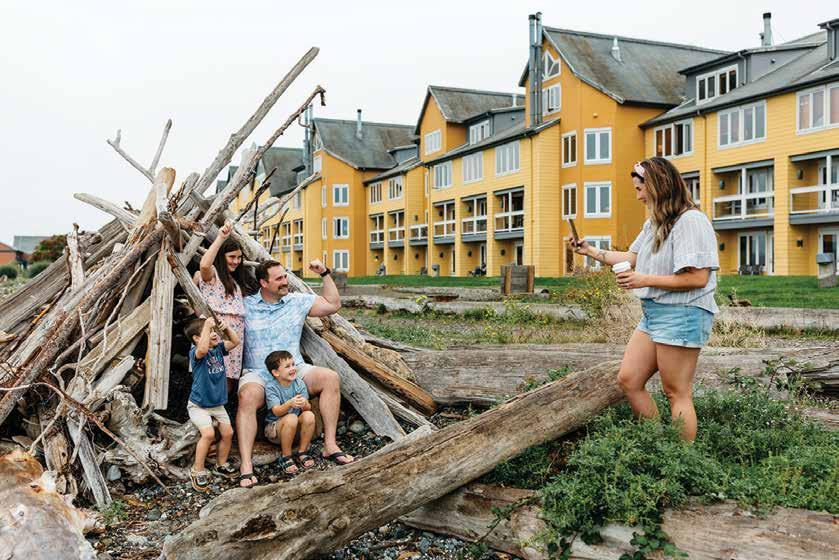
Untitled-5 1 8/9/23 4:04 PM 34 / PARENTMAP.COM
Neighborhood Spotlight Alki


Small town vibes in the big city
By Madison Miller
While it’s an often overlooked part of Seattle, West Seattle offers one of the region’s most sought-after beaches on Puget Sound. The Alki Beach neighborhood is more than just a beach town. Yes, the 2-and-a-half-mile-long sandy beach is home to volleyball players, sunbathers and beachcombers, but it’s also home to fun and whimsical community gems you just can’t find anywhere else.
Only the locals know …
If you head toward the beach and see a group of people wearing Bluetooth headphones and dancing with joy, you’ve likely stumbled on a silent disco (silentdance.org). Silent discos are a chance to meet folks

and listen to good music. The best part? It’s totally free and your kids will love it.

According to the neighbors … “For a fun activity, try taking the Water Taxi from downtown to Alki and back. It’s super easy, like going to an island with no car and no hassle. There’s also a hidden gem across the street from the ferry — Unwind Cafe, which serves the best smoothies in Seattle, in my opinion. Kids can bring scooters, as it’s a flat and safe area,” says Joel Gamoran, a local chef, father and frequent Alki visitor.
Get your play on
Make the most of your day on Alki by hitting the beach and a few special spots along the way. Alki Playground, better known as “whale tail park,” is a favorite among kids. With incredible slides, a spacious field and a sandbox for the little ones, it offers plenty of fun. Speaking of playgrounds, Outer Space Seattle (outerspaceseattle.com) is worth a visit, especially on rainy days. Its custom-built,
Photo courtesty of Unwind Cafe
Photo by Rory Graves
PARENTMAP / SEPTEMBER 2023 / 35
Silent Disco at the beach
continued from page 35
space-themed indoor playground will keep everyone happy during weekend open-play hours. West Seattle Arcade (westseattlearcade.com), located right on the main drag, opened recently. It offers a wide variety of video games and pinball machines for the whole family.
Pepperdock
Restaurant has some of the best ice cream in town. It recently underwent a renovation, so check out the new space and grab a scoop before summer is over.
For fresh and authentic bites, Cactus Southwest Kitchen + Bar (cactusrestaurants.com) is an excellent spot, made more so by a delicious and nutritious kids’ menu that will appeal to even the pickiest of eaters.
Locust Cider & Brewing Co. (locustcider.com) is a family-friendly taproom offering retro video games, a kids’ corner and a robust menu for kids — all to create a family-friendly atmosphere that’s rounded out with an amazing view of Alki Beach and the Seattle skyline.

Grab a bite and a cup of joe to go at Ampersand Cafe’s (ampersandalki.com) walk-up window. The freshly baked muffins, buttery biscuits, scones and baguettes mustn’t be missed.
What to bring
Alki Beach Park is this nabe’s main attraction, which means it is usually crowded. Head over to Constellation Park to get the same beautiful beach experience without the crowds. The park also is a great place to join the Seattle Aquarium’s Beach Naturalist Program (seattleaquarium.org) and see what critters you can find at low tide. While you’re at the beach, help the environment by picking up trash and debris as part of the Block Drop (byandby.org) cleanup program. One of the city’s hidden gems, Jack Block Park, is also worth checking out. The park features a walking path that passes by a play area and a walkable pier before reaching the park’s observation tower.

When you’re ready to seek a reprieve from the beach and sun, head to the Log House Museum (loghousemuseum.org) to inspect interesting West Seattle artifacts and learn more about the area’s history. And for Alki first-timers, no trip is complete without a visit to the Alki Point Lighthouse. Tours run most Sunday afternoons, Memorial Day through Labor Day.
Eats + treats
Harry’s Beach House (harrysbeachhouse.com) is a fantastic place for families. Along with delicious food for grown-ups, it provides crayons, books and other toys to keep kids entertained. The outdoor seating across the street from the beach is a big bonus.
If you can ride it, you can roll with it on Alki. Bike, scoot, board, skate or otherwise propel yourself along the paved sidewalk that stretches for miles. Roll in style by checking out Wheel Fun Rentals (wheelfunrentals.com), which features a large selection of specialty cycles, electric bikes, bicycles and tandem cycles.
Don’t forget to bring all the outdoor and beach essentials: swimsuits, sandals or water shoes, towels, sand pails and shovels, and sunscreen. ParentMap’s summer safety checklist for kids (parentmap.com/summer-safety) can help with the planning. ■
Madison Miller is ParentMap’s trends and engagement editor.
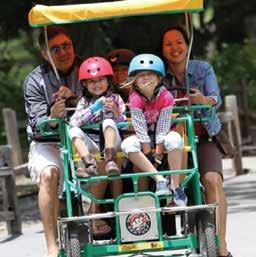
NEIGHBORHOOD SPOTLIGHT 36 / PARENTMAP.COM
Photo courtesy of Wheel Fun Rentals








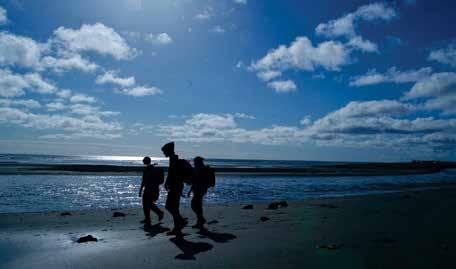



PRESENTING SPONSOR GOLD SPONSORS With Khalil Gibran Muhammad, Ph.D. Monday, Sept. 18 Register now: ParentMap.com/live Reclaiming the Past to Build a Better Future: A History of Racism in America PLATINUM EVENT PARTNER FREE Webinar EXPERIENTIAL RIGOROUS PERSONALIZED STRONG COMMUNITY TUITION ASSISTANCE HYLASCHOOL.ORG GRADES 6- 12 ONE SCHOOL ONE MISSION TWO CAMPUSES INFINITE POSSIBILITIES ® Wher e healthier futur es begin Bothell • Factoria • Issaquah Highlands • Redmond Redmond Ridge • Sammamish • Totem Lake (425) 827-4600 | AllegroPediatrics.com PARENTMAP / SEPTEMBER 2023 / 37
The Secrets to Raising a Creative Child
 By Laura Markham, Ph.D.
By Laura Markham, Ph.D.
Everyone has the innate capacity to be creative. And all of us need access to our creativity to solve the problems of daily life. While we can’t bestow talent on our children, we can train the eye and the ear and the mind, and we can help them master the concentration, competence, perseverance and optimism necessary to succeed in creative pursuits. Here are 10 ways to cultivate creativity in children from the get-go.
1. Neatness is overrated.




Kids who live in households with a focus on neatness are rated as less creative. As Ms. Frizzle of “The Magic School Bus” says, “Take chances! Get messy!”
2. Children who experience frequent limits on their actions train themselves to think inside the box.


You want children to see the world as full of possibilities. Why not let your baby empty the bookcase or the kitchen cabinet? Why shouldn’t your toddler “paint” the patio
with a paintbrush and a pail of water?
3. Focus on play and process, not productivity.
When kids create art to solicit positive comments from adults, sometimes they can’t wait to finish another picture to get that “Good job!” If you affirm how hard they’re working on that picture, they don’t have to rush through it to the next one to get your approval.
4. Give your child permission to be different.
Inventive, original kids are often seen as being different by other kids. To develop


their individuality, children need our support to navigate the pressures of popular and peer cultures. Make it okay for your child to be out of step with the norms of their peer group, to be unique, to see the world through their own lens.
5. Let toddlers experiment with manageable messes.
Let your little one experiment with making messes that they help clean up. Examples: water on the kitchen floor, bubbles on the porch, watercolors or chalk on the sidewalk, food coloring mixed with almost anything (snow, whipped cream, cornstarch or water).
Choirs for ages 4 and up Choirsforages4andup. Registration is open! Registrationisopen!



September is Septemberis "Bring a Friend Month" "BringaFriendMonth"

LOCAL RESOURCES / CAMPS: ARTS + ACTIVITIES
38 / PARENTMAP.COM
back, get messy and have fun
Step
MUSIC LESSONS IN SEATTLE NOW ACCEPTING CELLO STUDENTS! suzukiinstitute.org • info@suzukiinstitute.org • 425-954-6686 Private and group instruction for violin, viola, cello and piano – most start between ages 4-7 • Parent involvement: bond with your child • Ear training: kids learn by ear • Social: group classes provide social envirnoment • Suzuki Early Childhood Education: weekly music class for children 6 mos. to 4 yrs • Explore Suzuki Music: ages 4-5 0923_suzuki_institute_1-8h.indd 1 8/15/23 4:38 PM
6. Establish a place for art supplies. Store art supplies in a place that is both easily accessible and organized. Ideally, it should include drawers or bins to contain washable markers, paper, clay and anything else you feel comfortable adding as your children get older. Coloring books don’t exactly foster creativity; plain paper is much better.
7. Make creative art play easy.

If your child can initiate art activities without your help, they are more likely to create art when the spirit moves them. The best gift we ever received was a plastic tray for our daughter to put her paper and materials in as she worked.
8. Help your budding artist stay centered.

From Vincent van Gogh to Sylvia Plath, the stereotype of artists being mentally imbalanced pervades Western culture. Regardless of the reasons for the association of creativity with mental health issues, it can be argued that creative people may well need extra help and supportive structures to learn how to stay centered.


Be sure your child gets enough physical exercise to stay grounded. Help them regulate their body clock so they don’t stay up all night painting. Teach them to meditate. Promote a balanced diet free of caffeinated beverages. Make sure you’re there when they want to talk.
9. Boredom is not an enemy.
Parents often respond to kids’ boredom by providing structured activities or technological entertainment. But unstructured time challenges kids to engage with themselves and the world — to imagine, invent and create. When your kid complains that they’re bored, help them brainstorm possible screen-free activities, making it clear that it’s their job to figure out how to manage their own time.
10. Encourage kids to create together. While we usually think of creativity as an individual pursuit, sometimes the most rewarding creative experiences come from people working together. So, whether children are building with blocks or writing a story, support them to work through the challenges inherent in collaborating with another person, because the experience can be transformative. ■
Laura Markham, Ph.D., is the author of “Peaceful Parent, Happy Kids,” “Peaceful Parent, Happy Siblings” and “Peaceful Parent, Happy Kids Workbook.” This article was originally published on ahaparenting.com.




LOCAL RESOURCES / CAMPS: ARTS + ACTIVITIES Familymusicclassesforchildrenages birththroughage8andthegrownupswholovethem! sunshinemusictogether.com PARENTMAP / SEPTEMBER 2023 / 39
Dance Classes & Workshops DanceClasses&Workshops Dynamic Performances DynamicPerformances Community Support CommunitySupport Connecting Artists of Color ConnectingArtistsofColor At At VCBynum Arts & Education VCBynum Arts & Education weinspirehumanity.org weinspirehumanity.org Uplifting
and
diversity
the voices of all artists.
Ages + Stages
Are Deadlines Dead?
Does submitting timely assignments matter anymore?
By Jenna Vandenberg
Imagine your high schooler has been hard at work on a big project — maybe it’s a history essay or a science presentation. They’ve put in hours and completed the project to near perfection. But for some reason (anxiety or a moment of forgetfulness?), the assignment was turned in a day late. Due to a teacher’s late-work policy, your student gets not the A they would have earned, but 50 percent credit instead. An F.
At first glance, the policy seems unfair. Why does your kid’s superior work get a lower grade than someone else’s lackluster work that was turned in on time? This policy might even be counterproductive. Your teen may slam doors while shouting, “Why did I even bother, since I’ll fail anyway?” The possibility of this statement becoming a selffulfilling prophecy for some teens isn’t that remote.
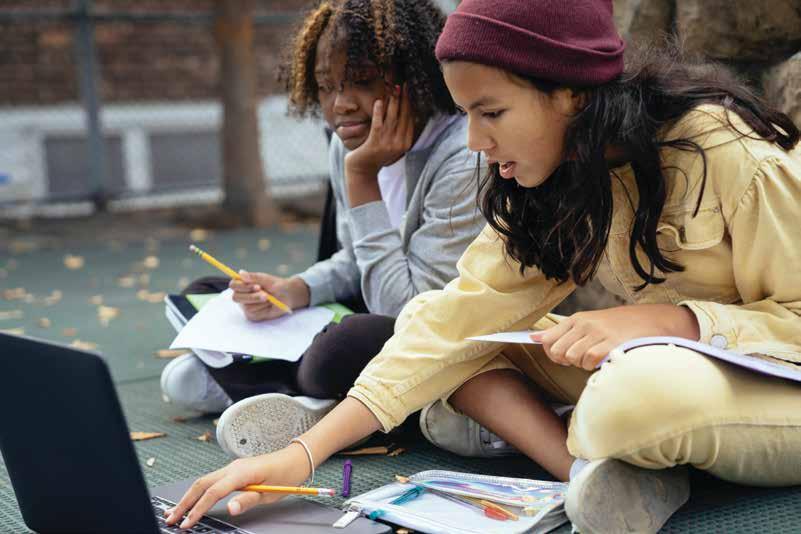
40 / PARENTMAP.COM
Teachers worry about these issues, too, and have long looked for grading systems that allow for that magic blend of flexibility and accountability.
Standards-based grading














In the early 2000s, a standards-based grading movement mounted a strong rebuke against late penalties, arguing that grades must have a clear meaning. Standards-based grading focuses on separating academic indicators from extraneous factors, such as timeliness. Using this model, students are graded purely on demonstrating what they’ve learned, not on when their work is turned in.
Research on standards-based grading has shown promise, but the model includes more than accepting late work. Moving to standards-based grading requires a district-wide effort, including an overhauled gradebook, one in which high school students are graded on dozens of skills, similar to an elementary school report card. This can be tricky for those families and college admissions boards that are used to letter grades. Teachers in traditional schools have embraced elements of standards-based grading, but the benefits of enacting a penalty for late work without incorporating the rest of the standards-based practices are a bit murkier.
Late policy considerations for students with IEPs and 504 plans

If your child is on an individualized education plan (IEP) for special education students, consider requesting an accommodation that allows for penalty-free late work. (It’s possible your student already has one.) If your child doesn’t qualify for an IEP, but struggles with physical or mental health challenges, a 504 plan may be put in place to allow for deadline extensions.
If your child does not have an IEP or a 504 plan, keep those in mind if your teen complains they were penalized for late work, but a friend wasn’t. Calling the teacher to demand an explanation can be awkward since teachers are legally required to keep IEP and 504 plan information confidential.
GO FISHING & WIN PRIZES! RAINBOW TROUT NOW OCTOBER 31 Look for the blue tag! WDFWDERBY.COM #Watroutderby Visit wdfwderby.com for more information Anyone with a valid 2023 WA Fishing License is eligible. Kids 14 and under are free! still nearly 450 amazing prizes, valued up to $659.00, swimming and ready to be caught!
PARENTMAP / SEPTEMBER 2023 / 41
“A pathbreaking introduction to one of the most powerful ways to protect our children’s mental health: mattering.”
“You know what matters? THIS POWERFUL BOOK.”
continued from page 41
Equitable grading
In 2018, Joe Feldman’s book “Grading for Equity” (gradingforequity.org) took the education system by storm. Since then, his Equitable Grading Project (crescendoedgroup.org) has reached thousands of teachers through workshops and school collaborations. Feldman connects tenets of standards-based grading to equity. He argues that when teachers incorporate soft skills such as attendance, participation and an ability to follow through on deadlines into their grading practices, the result is inequity, because these behaviors are susceptible to implicit teacher bias.
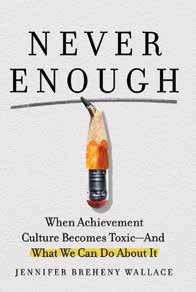
“It is well documented that schools’ disciplinary actions often disproportionately punish AfricanAmerican, Latino, low-income and special education students because of these biases, and the same biases similarly infect aspects of teachers’ grading. For example, when teachers grade students on ‘effort’ or any interpreted behaviors, those judgments are often clouded by teachers’ backgrounds and biases toward a student’s race, class or gender.”

— Joe Feldman, “School Grading Policies Are Failing Children: A Call to Action for Equitable Grading”
Feldman recommends not using grades to force compliance. Instead, he posits, students should be intrinsically motivated to learn. In addition to eschewing deadlines, he recommends other changes, such as not grading homework and allowing students to retake tests and redo assignments indefinitely. He reports that under this model, the number of students receiving D’s and F’s “often decreases, and decreases more dramatically for vulnerable and historically underserved student populations.”
“A primer for living a rich, meaningful life. What an achievement.”
FREE access to an exclusive interview with Jennifer B. Wallace when you use one-click registration for ParentEd Talks. That’s 13 talks!

See p. 23 First 25 receive this book!
Critics point out that Feldman’s experience as a classroom teacher totaled three years, and research for his book was done in a mere 15 schools. Since the 2018 release of his book, there hasn’t been enough independent research to suggest the model could work on a large scale. Many schools and teachers have incorporated his equitable grading practices into classrooms, but inconsistent implementation and the pandemic have thwarted efforts to collect compelling data. While Feldman’s book is full of anecdotes from students and teachers extolling the virtues of equity-based grading, stories of frustrations with the system are also plentiful.
AGES + STAGES
The definitive book on the rise of “toxic achievement culture” overtaking kids’ and parents’ lives, and a new framework for fighting back.
— Lisa Damour, Ph.D., bestselling author of “Untangled”
— Lenore Skenazy, founder of the Free-Range Kids movement
— Robin Stern, Ph.D., cofounder and associate director for the Yale Center for Emotional Intelligence
0923_Jennifer_Wallace_1-2V.indd 1 8/15/23 10:06 AM
42 / PARENTMAP.COM
Meanwhile, back in the classroom … Theory espoused by educational consultants who haven’t taught actual students since the Clinton administration often falls apart in the classroom. While harsh penalties for late work and strict deadlines can be harmful for some students, the elimination of deadlines wreaks havoc in a classroom. Expecting students to intrinsically want to write essays is naive, and allowing students to turn in assignments on their own timeline results in a glut of slipshod work turned in at the end of the semester. Sometime around early June, students start lamenting the fact that they were allowed to procrastinate in the first place, and many students who had grand plans of doing everything “later” end up failing.
Most students need deadlines and a late-work penalty to enforce them. Bestselling author Gretchen Rubin’s “The Four Tendencies” reveals that most people are more likely to meet external expectations, such as deadlines, but struggle to meet self-imposed expectations. Since most people have this tendency, taking away deadlines is detrimental to student success.
Equity versus equality
But what about the other students? Those who rebel against deadlines, who legitimately need more time or consistently forget to turn in completed assignments because of a disability? For those students, teachers can make exceptions. They can accept late work on a case-by-case basis.

The lack of deadlines outlined in “Grading for Equity” would be better defined as grading for equality, not equity. Equality is when the same support is given to all students, regardless of need. The no-deadlines approach is an equality tactic: All students get the same policy. Equity means giving each student the support they individually need. Even though a lack of deadlines is harmful to many students, teachers can’t round up those specific students and impose a special late-work penalty that only applies to them.
But teachers can do the opposite. Teachers can make a general policy establishing deadlines and late-work penalties, and then make exceptions for students in need. That would be truly grading for equity. ■
A mom of two, Jenna Vandenberg teaches history at a public high school north of Seattle.
0823_sno_isle_libraries-1-2v.indd 1 7/11/23 3:09 PM
PARENTMAP / SEPTEMBER 2023 / 43
Take the Stress Out of Birthdays by Throwing a ‘Fiver Party’

Say goodbye to scrambling to buy the perfect party gift
By Vicky McDonald
Buying gifts for kids’ parties can be challenging for parents. What to buy? How much to spend? How to avoid a crazy battle in the toy store when your kid insists they need a present, too? In short, shopping for birthday gifts can be a nightmare.
Of course, there are times when parents ask guests not to bring gifts to the party. In theory, this is a great idea, but it can cause problems. Parents sometimes feel weird about not bringing a gift, which results in some bringing gifts and others not — and that ends up being awkward for everyone.
We first reported on a trend a few years ago that might just help with this problem and it bears revisiting: It’s called a “fiver party.” The idea may have originated in Canada, but whoever thought of it, we’ll take it. The idea is that every party guest brings a birthday card with a five-dollar note inside instead of a present.

There are a lot of obvious advantages to this simple idea. For one, it makes attending a party so much easier: No more scrambling to buy the perfect party gift. Secondly, it changes the atmosphere at the party — guests will be far less likely to feel jealous about the mountains of toys the birthday celebrant is receiving and more likely to enjoy the actual party. It also cuts down on waste. Some toys given at parties can end up being thrown out or donated because the kid already has lots of toys.

LOCAL RESOURCES / BIRTHDAYS 44 / PARENTMAP.COM
A five-dollar bill is an equalizer — it’s a relatively small amount of money, so it takes the pressure off parents to buy something that may not be in their budget. That said, all those five-dollar bills add up, and it allows the birthday kid to buy an item that they really want — even need. It also gives you the option to use this money for something more worthwhile. Parents of babies or toddlers may choose to donate the birthday funds to a charity of their choice.




We live in an increasingly materialistic world, and this clever party idea is one way for parents to stop wasteful buying and encourage kids to appreciate the value of money. I know for sure I’ll be opting for a “fiver” for my kids in the future. ■

When not working, former ParentMap digital editor Vicky McDonald can be found running after her two kids or cooking up something tasty in the kitchen.
Hacks for Impressive Birthday Cakes


We can’t all be Cake Boss, and yet every time one of my kids’ birthdays rolls around they sure expect me to
Best new playgrounds for play hounds

be. Let’s just say birthday cake decorating is not my forte.
Can you relate? Then these easy, affordable and adorable cake topper ideas are for you! And the good news? You probably already have them in the toy bin (just be sure to sterilize them first).
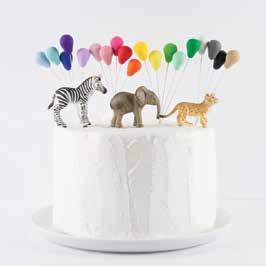
Ready for some fancy cake inspiration? Check out our super-simple cake decorations from Barbie to Lego, Minecraft to “Star Wars.” See them in action at parentmap.com/cake-hacks.
— Diana Cherry
LOCAL RESOURCES / BIRTHDAYS
KIRKLAND LYNNWOOD 425.820.2297 pumpitupparty.com/kirkland-wa 425.774.2297 pumpitupparty.com/lynnwood-wa
A bonanza of fantastic new
opened this past year — let’s go play!
playgrounds
PARENTMAP / SEPTEMBER 2023 / 45



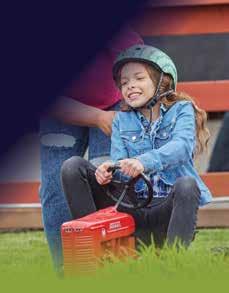

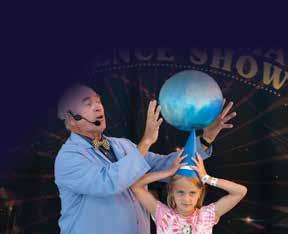
















































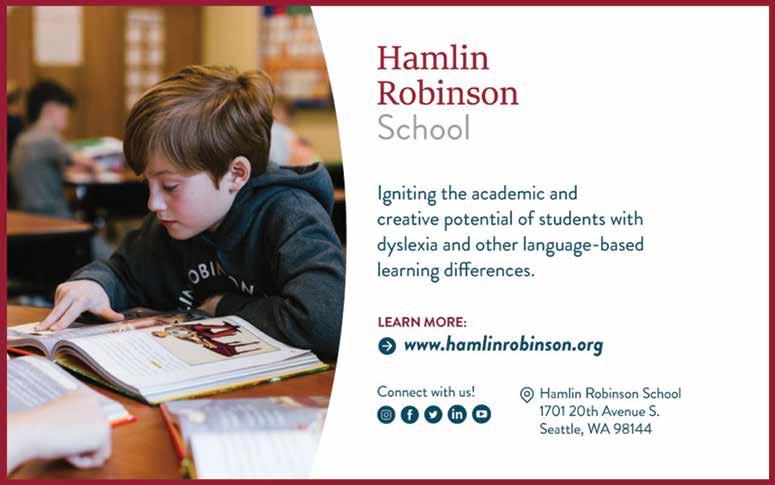
46 / PARENTMAP.COM To purchase tickets scan the code or visit THEFAIR.COM Presented by Presented by Presented by Presented by FREE!TRACTOR TRACKS FREE!FAMILYFUNSTAGE FREE!FACE PAINTING thhe R.CO $9 for ages 3+













































Your little chefs will learn from the best! DIY Chicken Gyros Air Fried Katsu Salmon Bowls Easy One Pot - Squash and Bacon Rigatoni Lemon Chicken Orzo Bake Brought to you by KitchenMagic and Present STEP INTO KITCHEN MAGIC As seen on the TODAY show Chef Joel Gamoran Seattle dad of two and graduate of the Culinary Institutes of America and Italy THIS MONTH’S RECIPES NEW! Cooking Video Series



Get an exceptional, private, samisfoundation.org/eligibility-estimator AFFORDABILITY DAY SCHOOL INITIATIVE




















































































































































































 Photo courtesy of Mt. Rainier Scenic Railroad
Photo courtesy of Mt. Rainier Scenic Railroad


























 Nancy Chaney is ParentMap’s Out + About editor.
Photo courtesy of Sea Mar Fiestas Patrias
Nancy Chaney is ParentMap’s Out + About editor.
Photo courtesy of Sea Mar Fiestas Patrias




















 By Laura Markham, Ph.D.
By Laura Markham, Ph.D.























































































